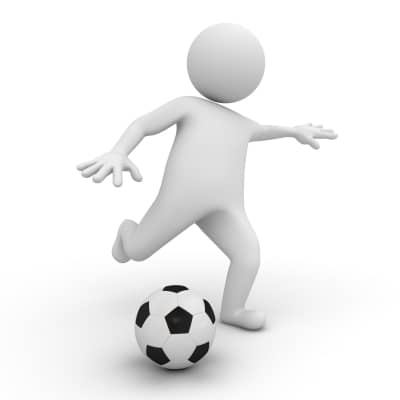What is a sports injury ?
A sports injury can be defined as an injury that occurs in a sporting or athletic activity. They can either caused by a one off acute trauma such as an acute sprained ankle or secondary to overuse.
Most of us are increasingly more and more sedentary in our everyday lives and occupations. Therefore as we are being regularly told by the media and our health care practitioners that exercise and physical activity are important for all aspects of our well being; more and more of us of are trying to make sport and exercise a part of our lives.
The physiotherapists at the clinic share this interest, whether it’s going to the gym, running marathons, road cycling, playing football, playing rugby, mountain biking or climbing. Therefore we understand the frustration when you are unable to participate in the sports or activities that you want to do.
What should you do if you have a sports injury ?
If you have an acute sports injury and you suspect serious injury such as a fracture then obviously the priority is for you to get medical attention urgently. However once serious injury is ruled out or has been managed appropriately; then the priority shifts to getting you back to normal as quickly as possible. The staff at Midlothian Physiotherapy LLP based in Eskbank just outside Edinburgh are here to assist you.
What happens at Physiotherapy
The first step is to take a thorough history of what happened. In the case of both an acute injury or a chronic overuse problem, this can give valuable clues as to nature of the problem. For example a twisting injury to the knee accompanied with an “pop” and rapid swelling would suggest an ligament injury. Whilst a gradual onset of achilles tendon pain following an increase in or return to training. would point in the direction of an achilles tendinopathy.
A physical assessment of the bones, nerves, ligaments, tendons and muscles in and around the area of pain is then carried out, in order to identify the source or mechanism of pain. Once this is identified a treatment plan can then be started to ensure that you return to the activities and level of activity that you wish to return to.
This programme can include manual therapy such as joint mobilisation or manipulation, soft tissue techniques, electrotherapy, exercise and advice to manage symptoms and restore joint/soft tissue range of movement, muscle strength/endurance, restore normal movement patterns and balance or proprioception. Once these are restored we can steadily restore overall function with a graded rehabilitation programme.
If after appropriate conservative management you are still not able to reach the desired level of function due to pain or some other reason. Your physiotherapist is in a good position to liaise with your GP regarding the best way forward. All of our physios have worked extensively with the local Edinburgh based Orthopaedic and Neurosurgical consultant surgeons, so we can work with you to help you make the best decision for you and your needs.
If the outcome is that you require a surgical intervention, we would be more than happy to assist you in your post operative rehabilitation. All the clinicians at Midlothian Physiotherapy LLP have extensive experience working with patients following knee surgery including ACL reconstructions, arthroscopic or keyhole surgery, and shoulder surgery including rotator cuff surgery, shoulder stabilisation surgery and other procedures and other joints such as the ankle.
If you would like us to help you with any sporting injuries or indeed any other musculoskeletal problems or pains then please contact us to make an appointment. We are based in Eskbank, so are within easy reach of Edinburgh, Penicuik and the rest of Midlothian. We’re open from 8 am to 8 pm Monday to Thursday, and 8 am to 6 pm on Friday, all our physios are Chartered Physiotherapists and registered with HCPC. In addition we all either train or participate in some kind of sporting activity so even if we don’t take part in your sport. We will understand your frustrations at not being able to do what you want to be able to do.

